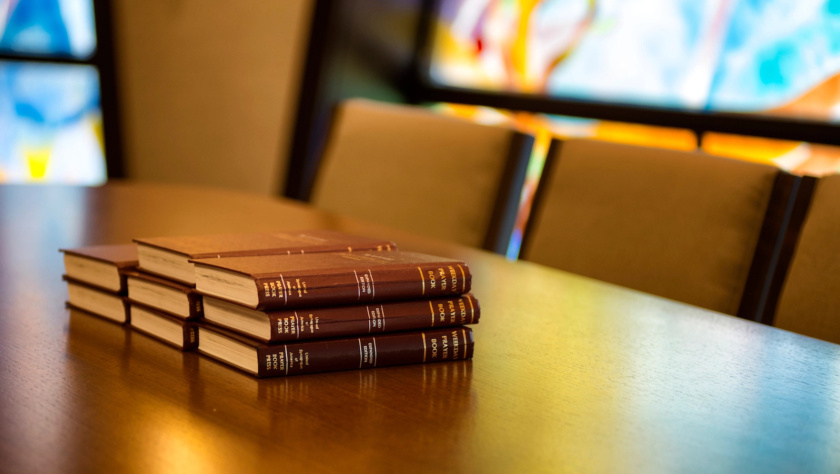Dear MMAE Family,
In Parshas Shemini, which we just read, the Torah commands the kohanim to refrain from drinking alcoholic beverages before they do the service in the Mishkan or Temple. The Torah goes on to explain the reason- a crucial part of the kohain’s job is to differentiate between “pure and impure, holy and unholy”. In order to differentiate, one needs a clear mind and alcohol does the exact opposite. The rabbis of the Gemara- the Talmud examine this law and conclude that the very same logic applies to a judge in court or a rabbi serving on a Bais Din. No alcoholic L’Chayims allowed. Certainly, someone making legal decisions needs clarity, seriousness, and sobriety.
Passover is coming and I hope you are looking forward to this beautiful annual tradition. If you’re like most people, though, you probably find it difficult to get all the way through the seder. It is certainly long and detailed, and after a feast, it’s not always easy to pull everyone back together to continue. It seems that many are happy just to make it to the dinner and say dayeinu. One thing is certain. Four cups of wine don’t help the cause of staying awake. If kohanim and judges are not supposed to drink when they are doing their serious business, why would we be OBLIGATED to drink 4 cups of wine? How will we have the concentration to give the seder the seriousness it deserves?
I believe that the answer lies in another seder value which is even more critical than seriousness and intellectual sharpness. I think the most important value of the Pesach seder is heartfelt authenticity. Caring- feeling- appreciating- and being emotionally invested in the seder is more powerful than having a great dvar torah (wise torah thought) up your sleeve. A proper seder is closer to a historic recreation than to an intellectual exercise. I’ve never been to Gettysburg but I imagine the people reenacting the battle scenes are full of emotion and passion. We need to have that kind of energy…ok, maybe don’t stab each other with bayonets…but nevertheless, we have to be “in the story” when we tell it. Not easy to do unless you’re a professional actor…or unless you drink 4 cups of wine and really care. The Talmud says, “When the wine goes in, the truth/secrets come out”.
This year at the seder, relax your mind and just try to feel and believe. The seder will be more meaningful that way. Tell the story like you were there- like you lived through it. You have to get into it. You have to feel some emotion. Do your best to bring tears to your eyes when you talk about the terrible oppression our parents and their parents faced throughout our long history. Heck, talk about the terrible things you’ve lived through. Maror is not just a prop- maror is the bitterness of life. My cancer was harsh maror for me and my family and I will revisit it every year as I tell the story. You have to become embittered. Conversely, celebrate the incredible miracle of the Exodus as if you were there. Smile, laugh, shout hurray, get excited about the incredible accomplishments of the Jewish people and our ability to make it through/ be saved over and over and over again. I will certainly be celebrating my personal salvation.
A seder is a wonderful tradition even when we don’t do it “right”. But if you can put your heart into it, there may be no better method of reminding ourselves what our Judaism means to us as well as passing the mantle of Jewish tradition L’dor V’dor- from generation to generation. We can’t afford to miss the chance of showing the next generation how emotionally connected we are to our heritage. If you have to drink a half a bottle to help to do it, L’Chayim. (For those who are sober or can’t drink wine for medical reasons, of course there are many ways of opening our hearts. Each person should find their path.)
Have a sweet, meaningful, and chametz-free Pesach!!
Love,
Rabbi Shapiro



